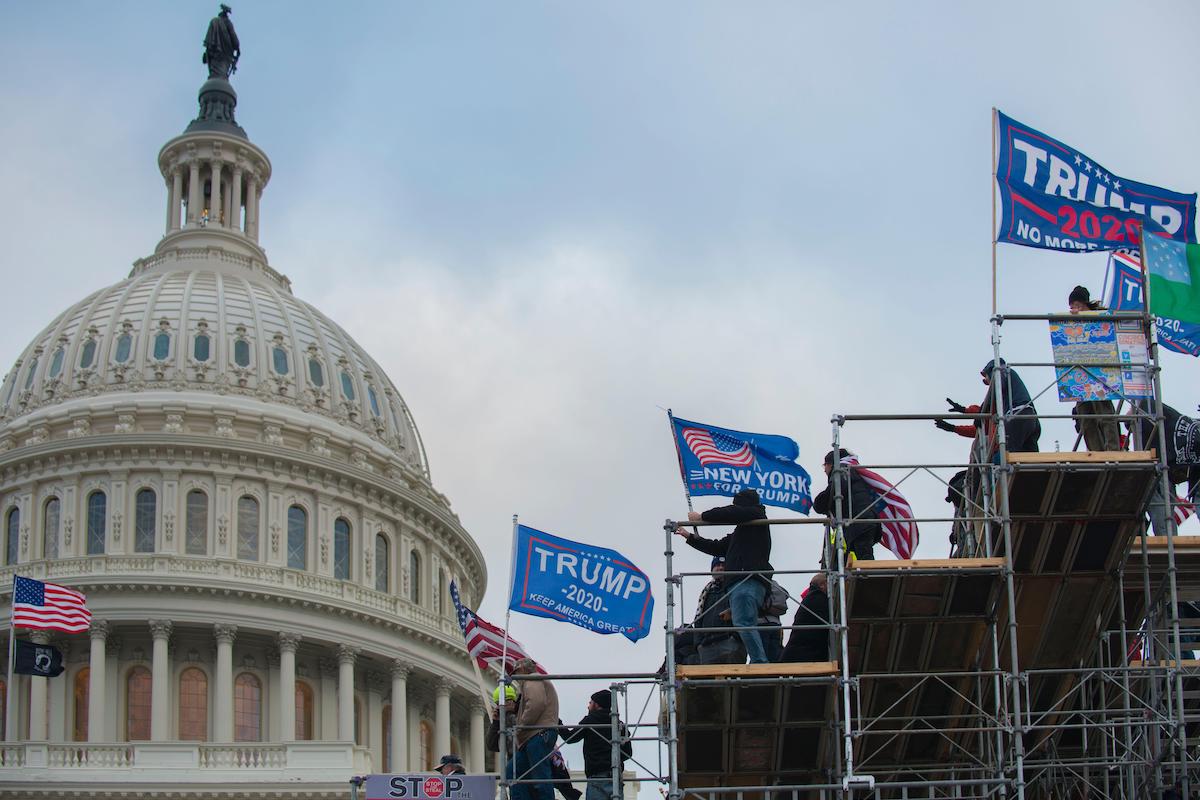Cancel Culture
Cancel Culture and the Republican Concept of Liberty
A culture that pressures institutions to sanction speakers based on unwelcome ideas may not always or even rarely end in a direct censorship of speech.

In June, an opinion piece published in the New York Times by Senator Tom Cotton arguing for federal troops to rein in the protests in Minneapolis sparked a political firestorm. The piece led to the firing of the editor in charge and a rare corrective from the op-ed department. The Times’s institutional response is now a familiar pattern in recent months. It reflects a wider cultural phenomenon, whereby those who espouse controversial or hateful opinions (either in the past or the present) can be punished by affiliated institutions.
Cancel culture refers to the practice of pressuring institutions in the hopes that they punish a member with a controversial public profile. At the start of the #MeToo era, the targets of cancellation were often figures that had conducted themselves in morally reprehensible or inappropriate ways. Since then, however, the targets of cancellation have broadened significantly to include those who espouse controversial views. In this arena, cancel culture abandons debate and argumentation in favor of an institutional sanction. The essence of cancel culture lies herein: a form of resistance directed not at speaker’s words, but at the power behind them. It operates outside both law and discourse—the typical bounds of liberal politics.
This extra-discursive, seemingly illiberal mode of resistance can be looked at in two ways. The first is empirical: to what degree does speech cause harm? In the Tom Cotton op-ed controversy, the progressive camp argued that Cotton’s words would “no doubt encourage more violence” onto protestors in Minneapolis. If so, an extra-discursive response may seem more warranted. Old school liberals, and those sympathetic to them, pointed out that the connection between Cotton’s words and violence was not obvious. At the very least, it required accepting premises that were open to doubt, such as the fact that local law enforcement will always provide better safety than federal ones, or that shows of force always backfire. But even if everyone were to agree that Cotton’s words were harmful, there is a separate, normative question to resolve: How should we weigh the effects of harmful speech against the value of free speech?
Unlike the empirical question, the normative one involves a conflict of values. Empirical questions can be resolved through the methods of social science, but normative questions cannot. Moreover, the cancel culture debate is more than a typical value conflict: It is one where the values at stake underpin the respective thought systems; free speech advocates see themselves as defenders of liberty, the touchstone of an open, liberal society, while the anti-racists fight in the name of social justice, the lifeblood of progressive politics. Wittgenstein once called such disagreements “deep disagreements,” referring to differences that involve commitments each of which are fundamental to one’s worldview. From a sociological perspective, deep disagreements resemble religious conflicts. Participants locked in deep disagreement are doomed to talk past each other because the very condition for mutual understanding—a common language—does not exist.
If the cancel culture debate is framed as such—a choice between the incommensurable values of liberty or justice—then a resolution is precluded almost by definition. By contrast, if the debate can be grounded in a shared vocabulary, one that speaks, in part, to the moral discontents of each side, then it might move onto a more productive terrain. Ordinary disagreements are less futile than their “deep” counterparts. Consider the economists’ dispute about how best to grow the economy. Since the Great Depression and the 2008 financial crisis, economists have made significant progress on this question in part because they share a fundamental premise: that growing the economy is a good thing. A common political language can achieve something similar in the cancel culture debate: It can shift the disagreement away from the likes of a religious confrontation into one resembling the economists’ dispute.

My aim here is limited in scope, however: there is no way to exaggerate the moral chasm between progressives and free speech advocates. Nevertheless, an attractive, well-articulated middle position might provide some foot traffic between what has now become two orthogonal, and deeply entrenched worldviews.
The language of liberty, timeless and eloquent, provides the basis for this common political language. But political philosophers distinguish between two concepts of liberty critical to our present moment. The liberty drawn from the liberal tradition, known as liberty as non-interference, construes freedom as the absence of obstacles to one’s actions and choices. In the free speech debate, therefore, liberty as non-interference highlights the dangers of not being able to speak your mind in the face of outside resistance. Censorship—from institutional penalties to platform bans to social ostracization—is the primary enemy of a liberty as non-interreference.
The republican concept of liberty describes a different situation. Though the obstruction of choice was an important part, early republican thinkers from Machiavelli to Rousseau were also concerned with the dangers of power imbalances (a concern shared by many left-leaning progressives). Consequently, they devised a political theory centered around freedom as the antithesis of power or liberty as non-domination. To be free in the republican sense is not just to avoid interference – though this is an important component – but to be free from the arbitrary rule of another. Suppose that you are a monarch’s favorite servant. Under liberty as non-interference, you are ostensibly free. So long as the monarch supplies you with food, clothes, and anything that you might desire, you are not impeded in your actions. But you do not enjoy any liberty as non-domination. Because the resources you enjoy are conditional on the caprice of a monarch, you are reduced to her beck and call, forced to bootlick for your continued survival. Republican freedom refers to a general situation of dependency more than a specific episode of interference. It is, in short, the ability to live one’s life without the need of anyone else’s consent.
Republican liberty has multiple consequences for the cancel culture debate. First, in order to safeguard liberty as non-domination, the freedom to speak your mind must be paired with something else: an equal access to speaking opportunities. The conventional liberal explanation for why free speech is valuable comes from J.S. Mill’s theory that truth arises from a “marketplace” of ideas, where arguments are freely exchanged and openly debated. Yet this argument assumes, if only implicitly, that the stage upon which ideas are shared is equally accessible to all. Without an attention to the unequal power that backs certain kinds of rhetoric, individuals can be dominated even in an environment with perfect liberty as non-interference. Imagine, for example, a public square where only a privileged few have access to a megaphone at the center. Unequal platforms can distort the truth and prevent the proper functioning of the liberal “marketplace.” The modern media landscape looks similar to the megaphone metaphor, where conditions of platform inequality are the norm and not the exception. In this context, freedom as non-domination requires both 1) the freedom to speak one’s mind and 2) the freedom to be heard on equal terms.
But this brings us to a second conclusion. Republicans would not readily endorse the tactics of cancel culture as a remedy. When equal opportunities to speak do not exist, as is often the case in our society, “cancellation” simply substitutes one form of domination for another: It resolves the second problem at the price of the first. The more precise solution is to first exhaust options that satisfy both conditions. Republicans thus propose equalizing power not by cancelling our enemies but by mobilizing and elevating the voices of our allies. Harmful ideas should be combated by an organized, mass response that maintains the liberal distinction of speakers and their words, while unabashedly employing a variety of counter-platforms to elevate one’s communicative power above the opposition. Especially in the age of digital media, countering speech with more vociferous speech is a readily available option without resorting to the double-edged tactic of cancellation.
There is a third conclusion. Some progressives suggest that the problem of cancel culture is an illusion. “There is no such thing as cancel culture” writes the New York Times columnist Charles Blow, because those in power are never directly prohibited from speaking even when confronted with institutional sanctions. On this view, free speech continues to exist unchallenged. But this idea of freedom is, again, narrow in scope. A culture that pressures institutions to sanction speakers based on unwelcome ideas may not always or even rarely end in a direct censorship of speech. On this view, a speaker’s liberty as non-interference is not always violated in a cancel culture society. But the culture poses a major problem for liberty as non-domination. Just as the servant to a benevolent monarch remains irrevocably chained to the whims of an external other, a culture that threatens a person’s job security based on an arbitrary or inconsistent standard of moral righteousness produces a dependency similar in quality to the condition of the servant. It is the culture of fear, not any specific episode of censorship that constitutes the antithesis of republican freedom.
The concept of liberty that underpins the free speech debate is more versatile than we might think—and now is the time to reframe it. More than the liberal tradition’s emphasis on the freedom to speak our minds, the republican tradition highlights the importance of equal access to speaking opportunities. While this allies republicans with one aspect of the progressive agenda, it also provides a reason to dismiss cancel culture as a viable political tactic. Under liberty as non-domination, the culture of silence that cancellation might engender is as objectionable as any direct form of censorship. The solution is to equalize speaking opportunities not through the cancellation of opponents, but through the organized elevation of historically marginalized voices. More than any other political concept available today, republican liberty speaks directly to the moral issues underpinning both sides of the culture wars. It provides a coherent political framework that can bring the cancel culture debate into new, productive terrain. In this world, politics may no longer be a zero-sum game, for the safeguarding of liberty as non-domination was—as many republicans recognized—the best means of protecting both liberty and justice.






